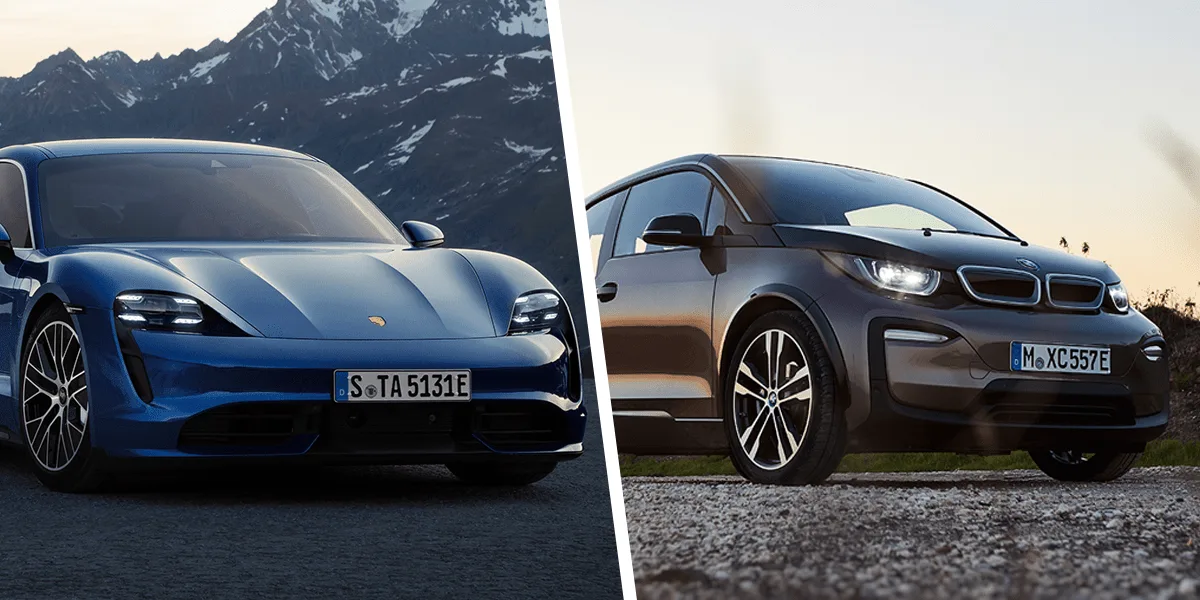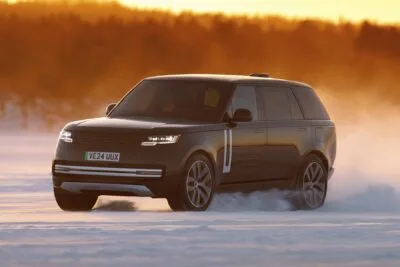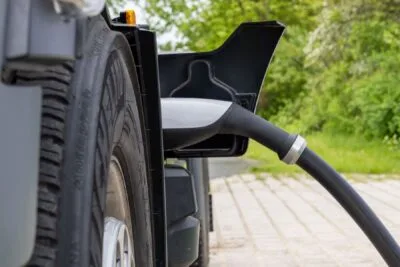German carmakers increase electric car sales
German carmakers Porsche, Audi, VW and the BMW Group, have published sales figures for 2020. Although overall sales declined, their sales of electric cars and plug-in hybrids still saw a significant increase. In some cases, these now account for a double-digit share of total sales.
++ Kindly find all updates to this article below. ++
Volkswagen tripled its electric sales in the year of the ID.3 launch. The German carmaking giant was able to sell 212,000 electric vehicles in 2020, of which 134,000 were BEVs and 78,000 were PHEVs. In 2019, the figure was still 45,117 electric cars and 37,053 plug-in hybrids. For BEVs, this makes an increase of 197 per cent.
“The year 2020 was a turning point for Volkswagen and marked a breakthrough in electric mobility,” said Ralf Brandstätter, CEO of the Volkswagen brand. He said that the brand is well on track to becoming the market leader in battery-electric cars.
Across all drive types, VW delivered 5.328 million vehicles worldwide. This put the share of e-drives globally at just under four per cent. According to Volkswagen, this was 12.4 per cent in Europe, up from 2.3 per cent in 2019.
Among German automakers, VW has a relatively large range of battery-electric models with the ID.3, ID.4, e-Up and, in 2020, still the e-Golf. The most popular model was the ID.3 with 56,500 units – although this only entered the markets from September – followed by the e-Golf with around 41,300 units and the Passat GTE with around 24,000 cars.
At luxury car subsidiary Audi, total sales fell 8.3 per cent, with Audi selling 1,692,773 vehicles worldwide in 2020. Even a strong final quarter with more than 500,000 units sold in the quarter for the first time in the company’s history could not prevent the decline for the year.
While total sales fell, electric car sales rose at Audi. The e-tron (including the e-tron Sportback) was up 79.5 per cent to 47,324 units. Audi also points to Norway, where the e-tron 2020 was the best-selling model across all drive types. It also says that the e-tron is “the best-selling electric vehicle among German premium manufacturers” worldwide. By comparison, Mercedes said on Monday that it had sold 47,800 electric cars across all model series but only 20,000 units of the e-tron competitor EQC. Audi has sold almost as many BEVs with its e-tron derivatives as Mercedes has with the EQC, EQV and Smart EQ combined.
Audi has not revealed the share of electric and plug-in models in the nearly 1.7 million deliveries. As soon as Audi submits the figures for the plug-in hybrids, we will add them here.
Porsche cracked the 20,000 sales mark with the Taycan last year. A total of 20,015 units of the Taycan were delivered worldwide in 2020 despite a six-week production halt due to the pandemic. Chief Sales Officer Detlev von Platen also points to the successful launch of the first electric model: “Our fresh, attractive product range, the successful start of the Taycan as the first all-electric Porsche and the charisma of our brand – all this contributed to this positive result despite the difficult times.”
However, von Platen says that what he sees as positive here is that “we were able to keep deliveries comparatively stable for the year as a whole despite the challenges.” At 272,162 vehicles, deliveries were down three per cent compared to the record year of 2019. With more than 92,000 units, the Cayenne SUV was the most popular model series. When asked, Porsche says that 21,469 of these were PHEVs – in other words, just under one in four Cayennes was at least partly electric, for whatever that is worth, in 2020. For the Panamera 25,051 units, of which 5,535 were PHEVs), the plug-in hybrid share was at a similar level of 22 per cent. Across all model series, the overall electric share at Porsche was 17.3 per cent if one includes partially electric cars.
Total sales at the BMW Group with the BMW, Mini and Rolls-Royce brands also declined (2,324,809 units, -8.4 per cent), but electrified vehicles (from BMW and Mini) increased by 31.8 per cent. In 2020, 192,646 electrified vehicles were sold. Sales of purely electric vehicles increased by thirteen per cent, and those of plug-in hybrids by almost forty per cent but BMW has not provided absolute figures here.
Although the i3/i3s has received support this year from the Mini Cooper SE in the battery-electric drive segment (very few examples of the iX3 have been registered to date), the BEVs’ growth has been relatively moderate. It is reasonable to assume that the majority of the 192,000 electrified vehicles are actually only partially electric.
BMW says that sales of plug-in hybrid vehicles increased by almost forty per cent (38.9%) compared to the previous year. The majority of electrified models were sold in Europe in this regard. “Thanks to our Efficient Dynamics technologies and the more than 135,000 electrified vehicles we delivered in Europe, we over fulfilled our CO2 fleet targets in the EU and were even able to go below the mandatory limit by a few grams,” said Pieter Nota, member of the board of management responsible for sales.
While BMW seems very confident about its CO2 targets, premium rival Mercedes was more cautious on Monday. CEO Ola Källenius indicated that “internal forecasts” suggest it will meet its European CO2 targets for 2020. Mercedes-Benz Cars said it sold “more than 160,000” BEVs and PHEVs last year, including about 48,700 units of the EQC e-SUV.
Update 13 January 2021: One day after the brands, the Volkswagen Group has also presented its sales figures for 2020. Cumulatively, the Group delivered 231,600 purely electric vehicles last year, more than three times as many as in 2019, in addition to 190,500 plug-in hybrids (+175 per cent). In Western Europe, the share of deliveries accounted for by electrified vehicles rose significantly to 10.5 per cent (2019: 1.9 per cent). Across all drive types, the group delivered 9.3 million vehicles. VW attributed the 15.2 per cent decline to the Corona pandemic. However, as the overall market declined more sharply, the company said it was able to expand its global market share.
When announcing Group figures, Volkswagen also gave details on other models that the Volkswagen brand did not mention on Tuesday. For example, 22,200 vehicles of the VW e-Up were sold, putting the small electric car in fourth place in the group-wide electric statistics, just behind the e-Golf (41,300 units) but ahead of the Porsche Taycan (20,000 vehicles).
Among plug-in hybrids, the VW Passat GTE (27,200) was ahead of the Audi Q5 (23,500) and the Porsche Cayenne (21,500). The Škoda Superb iV (16,400) and the Golf PHEV (15,200) rounded out the top 5.
Update 21 January 2021: It is now clear that the Volkswagen Group has narrowly missed the EU’s CO2 fleet targets for 2020 overall. The CO2 pool formed with other manufacturers fell short by around 0.5 g/km last year. We have summarised all the information for you here.
With reporting by Sebastian Schaal, Germany.
porsche.com, bmwgroup.com, volkswagen-newsroom.com, audi-mediacenter.com, volkswagen-newsroom.com (update)






0 Comments